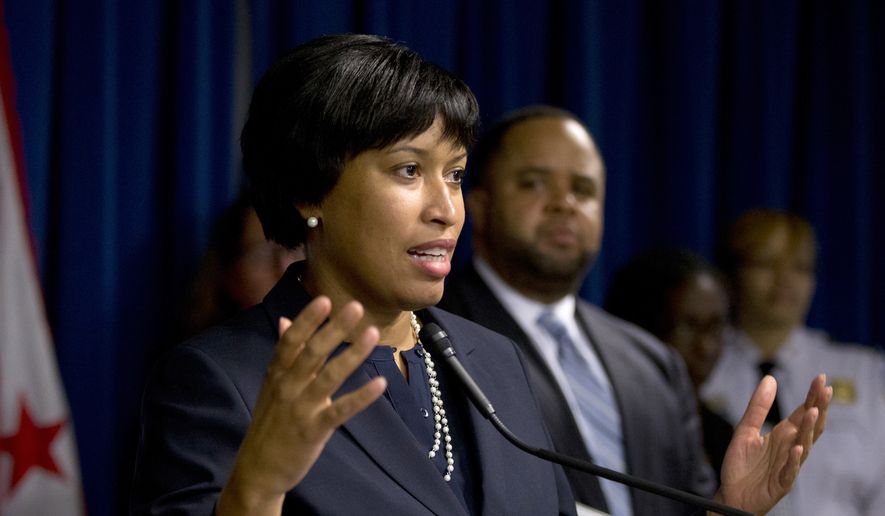D.C. Mayor Muriel Bowser announced Friday a new plan to expand job-training services and better align the programs with the needs of city businesses, just a few months after the U.S. Labor Department rated the District a “high-risk” partner in training programs.
The initiative comes as a way to bring the city’s workforce training in line with the Workforce Innovation and Opportunity Act — the federal law that oversees state job training programs, Ms. Bowser said.
The plan focuses on, among other things, making sure job training programs teach residents skills that are useful to District businesses owners.
Through those kinds of programs, “the District’s business community gains access to a broader pool of District residents with the skills necessary to meet their needs and advance within their organizations,” according to the plan released Friday.
Though Ms. Bowser’s plan does not mention specific programs, Andy Shallal, who heads the Workforce Investment Council, a D.C. advisory panel on improving the city’s workforce, hinted at what the focus of those programs could be in an interview with The Washington Times in December.
Mr. Shallal has met with business owners who have told him they really need workers who know how to handle themselves professionally more than they need workers who possess a certain skill.
“A lot of the business owners will tell you the first thing they look for are life skills,” he says. “If you have someone who isn’t going to show up on time, isn’t going to be dressed professionally and isn’t going to act professionally, their chances of succeeding aren’t that great.”
Mr. Shallal said the reason many D.C. residents fail to get or keep jobs isn’t a lack of technical skills, but a lack of “life skills.”
“We rarely fire someone for not knowing how to do something,” said Mr. Shallal, owner of the Busboys and Poets restaurant. “We’re seeing a lot of people coming through the door that don’t have the skills to even be able to interview.”
However it’s likely that skill-based training will continue to some degree as Ms. Bowser’s new workforce initiative includes plans to continue apprenticeship programs.
Currently, a minimum of 35 percent of apprenticeship hours on all government assisted projects must be performed by District residents. The number has proven to be even higher, however, as Ms. Bowser notes 78 percent of apprentices that helped in the construction of Nationals Park in Southwest were residents and 62 percent of those who helped build City Market on O Street Northwest also hailed from within the District.
Though apprenticeship programs have tended toward construction projects in the city, Ms. Bowser’s plans to expand into more high-tech sectors including information technology, health care and cybersecurity.
• Ryan M. McDermott can be reached at rmcdermott@washingtontimes.com.




Please read our comment policy before commenting.